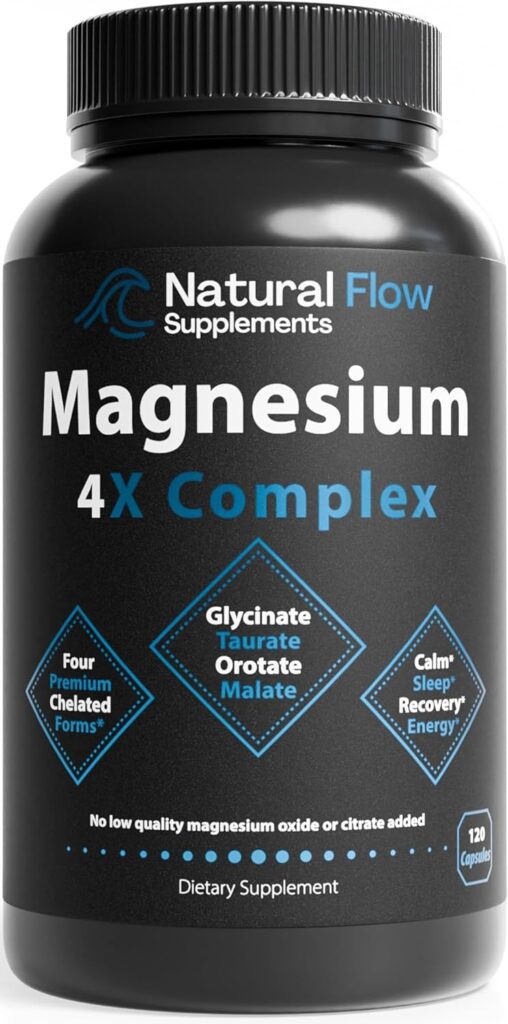Struggling to get a good night’s sleep can affect your mood, energy levels, and overall health.
Many people experience difficulty falling asleep, staying asleep, or feeling rested in the morning.
While lifestyle changes can help, certain natural remedies can also support relaxation and improve sleep quality.
Incorporating these into your nightly routine may help you fall asleep faster, sleep more deeply, and wake up feeling refreshed.
In this post, we are going to explore 5 natural sleep remedies, starting with the causes of poor sleep.
Let’s dive in!
What Causes Poor Sleep?
Poor sleep can result from a variety of factors, including stress, anxiety, irregular sleep schedules, caffeine consumption, and exposure to electronic devices before bed.
Medical conditions such as insomnia, restless leg syndrome, or sleep apnea can also interfere with restful sleep.
Additionally, deficiencies in certain nutrients, like magnesium, can affect your body’s ability to relax and maintain a healthy sleep cycle.
5 Natural Sleep Remedies
1. Magnesium Complex
Magnesium is a key mineral that helps regulate the nervous system and supports muscle relaxation, making it easier to fall asleep and stay asleep.
A high-absorption magnesium supplement with glycinate and taurate can help with calm and sleep support right before bed.
Out of all of the magnesium supplements I’ve tried, Natural Flow’s 4x Magnesium is my personal favorite.
Natural Flow Magnesium is my go-to for supporting deep sleep.
Its premium blend of magnesium glycinate, taurinate, malate, and orotate is highly absorbable, gentle on the stomach, and helps calm the nervous system so you can fall asleep faster and stay in the restorative stages of sleep.
Just one serving supports relaxation, reduces nighttime restlessness, and helps you wake up feeling refreshed and ready for the day.
Simply take 2 capsules per day and you’re good to go!
2. Herbal Teas
Herbal teas like chamomile, valerian root, and lavender have been traditionally used to promote relaxation and reduce stress before bedtime.
Sipping a warm cup of herbal tea 30–60 minutes before sleep can create a calming nighttime ritual and signal to your body that it’s time to wind down.
3. Maintain a Consistent Sleep Schedule
Going to bed and waking up at the same time each day helps regulate your circadian rhythm.
Consistency strengthens your body’s internal clock, making it easier to fall asleep naturally and wake up feeling refreshed.
Even on weekends, try to keep your sleep schedule similar to avoid disrupting your natural rhythm.
4. Limit Electronics Before Bed
Exposure to blue light from phones, tablets, and computers can interfere with melatonin production, making it harder to fall asleep.
Reducing screen time at least one hour before bed or using blue light filters can improve your body’s natural sleep signals and help you drift off more easily.
Also, consider purchasing blue light or red light glasses if you plan on using technology before bed.
5. Practice Relaxation Techniques
Techniques such as deep breathing, meditation, progressive muscle relaxation, or gentle stretching can reduce stress and prepare your mind and body for sleep.
Creating a calming pre-sleep routine allows your nervous system to shift from an alert state to a restful state, improving overall sleep quality.
Sleep Support For You
Improving your sleep naturally is possible with consistent habits and the right support.
Magnesium supplements, herbal teas, a consistent sleep schedule, reduced screen exposure, and relaxation practices all work together to promote restful, restorative sleep.
By incorporating these strategies into your nightly routine, you can enjoy better sleep, enhanced energy, and improved overall well-being.
Thank you for reading!
Affiliate Disclosure
Some of the links on this site are affiliate links. This means that if you click on the link and purchase the item, we may receive an affiliate commission at no extra cost to you. I only recommend products or services that I believe will add value to my readers, however, some (not all) do pay us to be on this blog. Your support and theirs help keep this blog running, and I genuinely appreciate it.
Medical Disclaimer
The information provided on this website is for educational purposes only and is not intended as medical advice. This blog or the writer is not a licensed healthcare professional, and the content should not be used as a substitute for professional medical diagnosis, treatment, or advice. Always consult with your physician or other qualified healthcare provider before starting any new treatment or making any changes to your healthcare routine.
